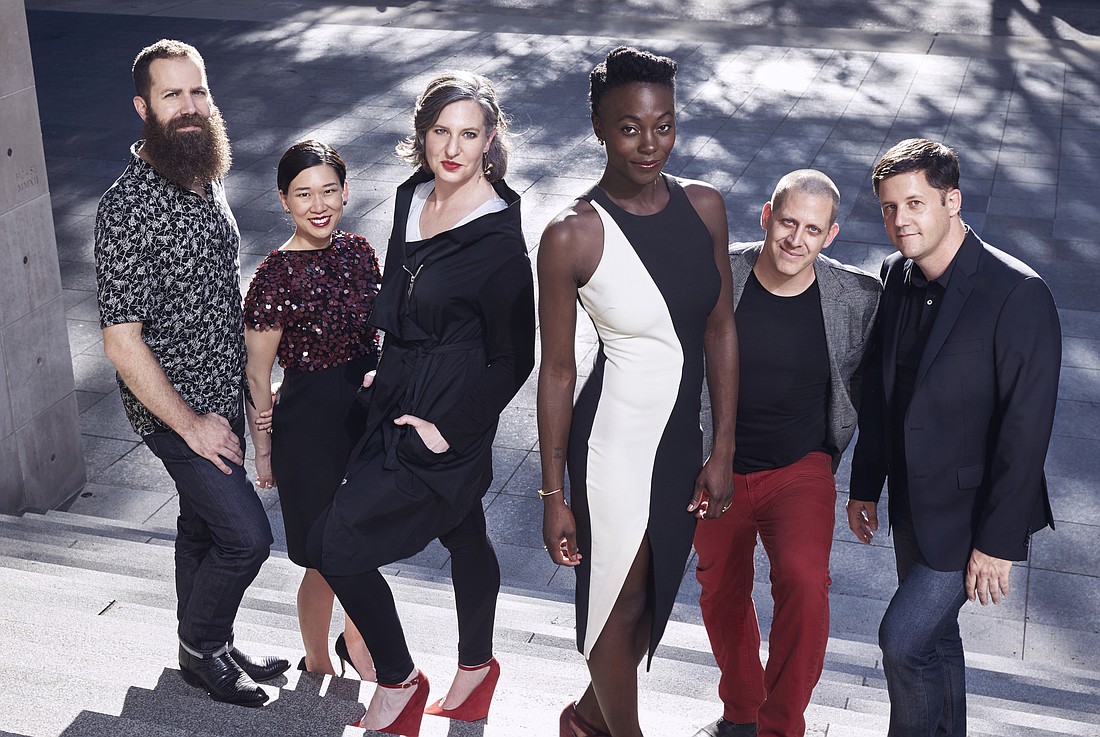- April 25, 2024
-
-
Loading

Loading

I asked a rhetorical question in a recent column: What is music?
I was taught that music is organized sound. Anyway, that’s what they said in olden times. What Eighth Blackbird, a group of extremely talented musicians (Nathalie Joachim, flutes; Michael Maccaferri, clarinets; Yvonne Lam, violin; Nick Photinos, cello; Matthew Duvall, percussion; and Adam Marks, piano), presented at the Historic Asolo for the Ringling International Arts Festival was certainly organized.
They played it from their iPads, varying interestingly in size from smart phone to tome, so it was written out and organized by a composer for performance as written.
Some, like Robert Hornstein’s “Conduit” and Timo Andres’ “Checkered Shade” were vaguely tonal, with “Conduit” traversing, ascending scales built loosely around a root tone. Others, “By-by Huey” by Ted Hearne and Jacob Cooper’s “Cast,” were harder to decipher but went more to the emotions than the intellect.
The playing, in every case, was brilliant, but the material became monotonous and lacking in meaning. If you’re a flutist or clarinetist, or a pianist who’s interested in a prepared instrument, it’s fascinating to hear new sounds painted by composers who are trying hard to invent something different. But what does that sound mean? What does it do?
Bach was a brilliant technician. He could take a four-part fugue and bend it in different directions so that, on paper, it became an intricate mathematical puzzle. But Bach had heart. Even without knowing his crab canons were crawling in every direction, you feel emotion; you’re punched in the gut by what he has to say. The only punch I got out of this concert was a big yawn.
I also felt I was missing an important part of the presentation. Each composition was based on a piece of art, but we didn’t get to see any of it. Yes, there were infinitesimal photos of the works included in the program, but they weren’t interactive, and they didn’t light up (as described, after the fact, by members of the ensemble) or flash or give any sense that they belonged to the music. It was like being left out of half the production.
John Williams, Aaron Copland and Philip Glass have music for films, but their music stands alone without the movie that inspired it. The four works we heard in the program, titled incongruously, “Hand Eye,” needed visual aids. Or something. Something more than great playing and what amounted to tricks of the trade to get us involved in the goings on.
RIAF seems to fall short these days when it comes to its musical presentations. They lack the sparkle and the passion of the dance and theater productions it presents. Eighth Blackbird is a young, vivacious, talented group of musicians but again, the music they offered was, I’m sure, much more interesting to play and analyze than to hear.